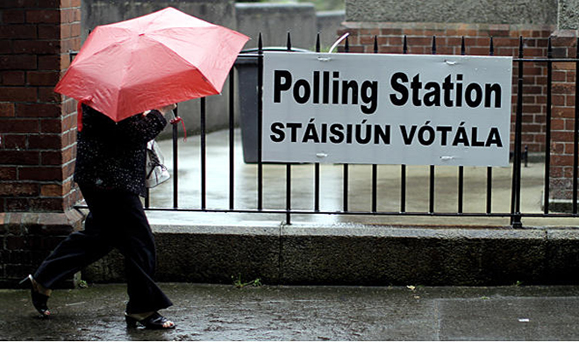“I’ve lived almost half my life outside of Ireland but I am definitely Irish in terms of the teams I support, the sports I watch, what newspaper and websites I read first.”
– Adrian Jones
Early September mornings in New York take on that European feel. A breeze in from the river – no humidity. Everything clean from the overnight thunderstorm. Heading down the bike lane on Second Avenue, I pull over to adjust the understrap on my bike helmet. There’s a fruit stand right there and cherries are in season. Propping my bike up against a railing, I look around for the vendor and, not seeing him, I grab a bag of cherries and put them on the weighting scales – two and a half pounds. I’m pondering whether I should just leave the money when a young man appears – dark-skinned, fine-featured, shiny brown-black hair cut in a longish shag. In a word – beautiful. (Michelangelo would have made a fine sculpture of him, methinks). He’s holding an open container of blueberries – “I just washed them good,” he says holding them out to me. I take a handful. They are good, ripe and bursting with juice. Delicious.
“You Irish?” he asks and before I can reply he says, “Conas ta tu?” with a cheeky grin.
My native language rolling off the tongue of this young gallant is not something I was expecting on this New York morning. As it turns out, my fruit vendor is Turkish, but I don’t find that out straight away. “Ireland is my true country,” he says, his hand on his heart. He tells me that he learned his Gaelic hanging out with a group of young Irish in Australia, and that because “such great people must come from a great country,” he left Australia and went to live in Ireland. (There may have been a romance involved.) Our sidewalk chat turns to talk of the Irish weather, which we both agree is dismal, but he won’t be dissuaded that Ireland is anything less than perfect.
My Turkish friend thinks the Irish are easy-going, but “watch out” if you bother them. “It’s the only country that doesn’t have an army,” he says. I correct him on that point but allow that the Irish Army is mainly engaged in peacekeeping missions.
Finally, with a wave of hands and “Slan’s” and way too much fruit – in addition to my cherries I now have two containers of blue-berries – I pedal away smiling, picturing as I go all those young Irish in Australia, New Zealand and Canada, spreading the joy, and thinking about the uncanny ability of the Irish to make people like them.
I often randomly ask people what they think of the Irish, and the question always elicits a positive response. (A Chinese New York cab driver once told me that he liked the Irish because they never got sick in his cab. “They always open the door.” )
But it’s not just outsiders who have a thing for Ireland. For the Irish abroad, like Adrian Jones, this issue’s cover story, Ireland will always be home.
After spending nearly half his life living outside Ireland, Adrian declares that he is still “definitely” Irish. And although he has one of the top jobs in the Merchant Banking Division at Goldman Sachs, he still finds time to stay involved with a number of charities and Irish causes.
Emigrés such as Adrian are increasingly being seen as having an important role to play in Ireland’s economic recovery, and he has some interesting comments to make on that idea in his forthright interview with Sheila Langan in this issue.
Ireland is asking more of its diaspora, yet, unlike almost every other country in the world, including Canada, Australia, New Zealand, the U.K, and most of Europe, all of which allow passport holders to vote in elections, Irish citizens living abroad are not allowed to vote in Irish elections.
This means that generations of Irish are disenfranchised and punished for leaving the island to find work. They can’t vote at home and they can’t vote in whatever country they find themselves unless they take out citizenship, a process that can take years.
Since the early 1990s, the Irish government has been paying lip service to the idea of allowing emigrants a vote but nothing ever happens.
It’s time to ask not what the Irish diaspora can do for the country, but what the country can do for the diaspora.
A vote would be a good place to start.


Leave a Reply